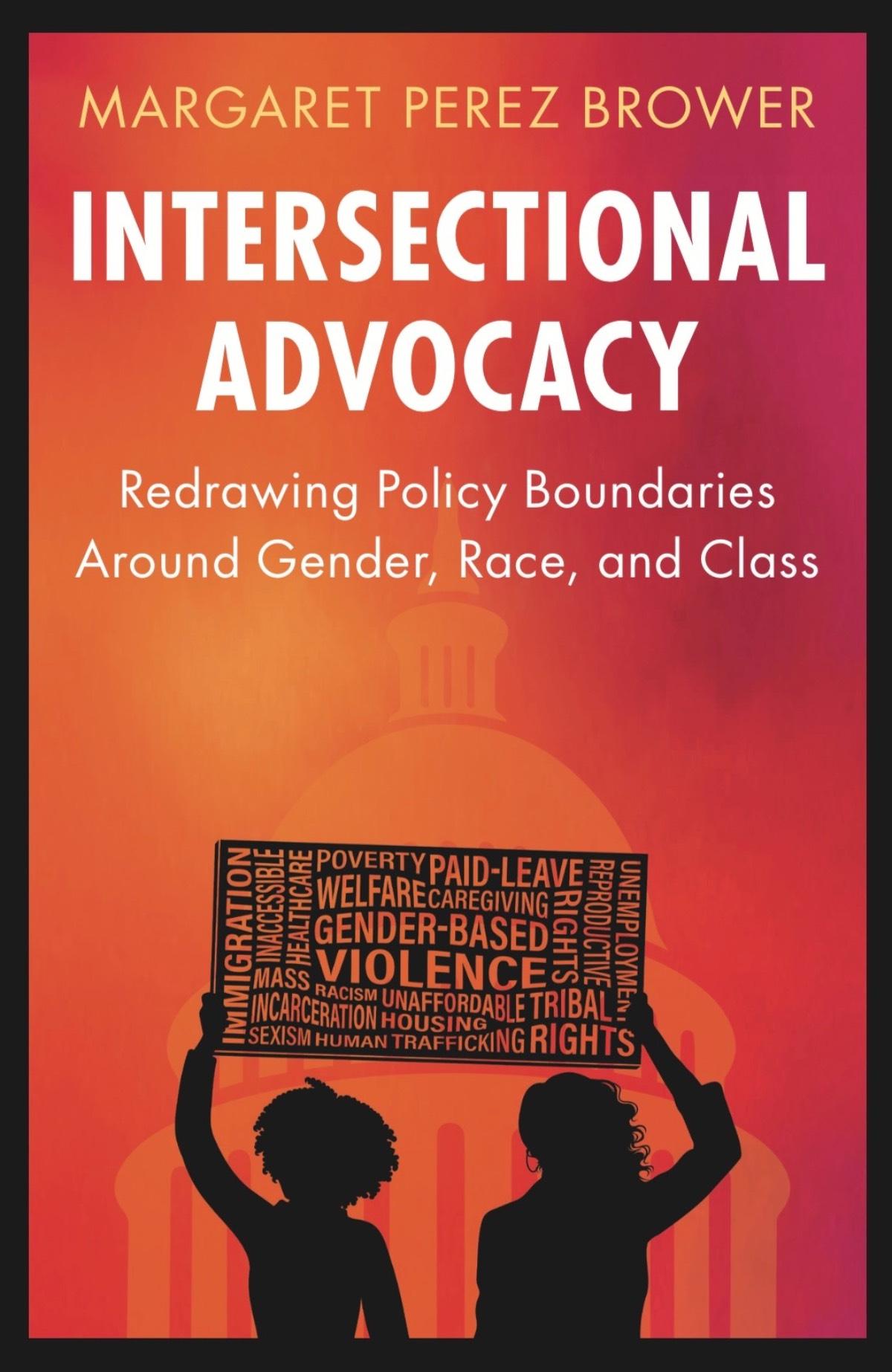
What happens to those living at the margins of US politics and policy – trapped between multiple struggles: gender-based violence, poverty, homelessness, unaffordable healthcare, mass incarceration, and immigration?
Join us as Margaret Perez Brower offers the concept of “intersectional advocacy” to reveal how select organizations addressing gender-based violence are closing policy gaps that perpetuate inequalities by gender, race, ethnicity, and class. Intersectional advocacy is a roadmap for rethinking public policy.
Her new book, Intersectional Advocacy (Cambridge Press, 2024), captures how advocacy groups strategically contest, reimagine, and reconfigure policy institutions using comprehensive new strategies that connect issues. As these groups challenge traditional ways of addressing the most pressing social issues in the US, they uncover deep inequities housed within these institutions.
Ultimately, organizations practicing intersectional advocacy illuminate how to redraw the boundaries of policies in ways that transform US democracy to be more representative, equitable, and just. In her book, Brower:
- Identifies and analyzes organizations addressing gender-based violence in the US that practice intersectional advocacy
- Bridges scholarship across disciplinary fields and subfields, especially between sociology, political science, public policy, and gender studies
- Provides a practical guide for policymakers and organizations to apply intersectional advocacy to various stages of the policy process
Margaret Perez Brower is Assistant Professor of Political Science and Gender, Women, and Sexuality Studies at the University of Washington. While earning her PhD in Political Science from UChicago, she was a doctoral fellow at the Pozen Family Center for Human Rights.
Brower will be in conversation with Cathy Cohen, the D. Gale Johnson Distinguished Service Professor and inaugural chair of the Department of Race, Diaspora, and Indigeneity at the University of Chicago.
- Department of Political Science
- Department of Sociology
- Center for the Study of Race, Politics, and Culture
- Seminary Co-op Bookstore
- Pozen Family Center for Human Rights
